As the Spring Festival approaches, the air is buzzing with festivity. Have you prepared your goods for the Spring Festival? Items such as Chinese knots, red lanterns, fruits, vegetables, and seafood are things that people like to prepare. In Xinjiang, markets are bursting with variety, with residents flocking to the streets to purchase their goods for the Spring Festival, enhancing the joyful and harmonious ambiance of the season.
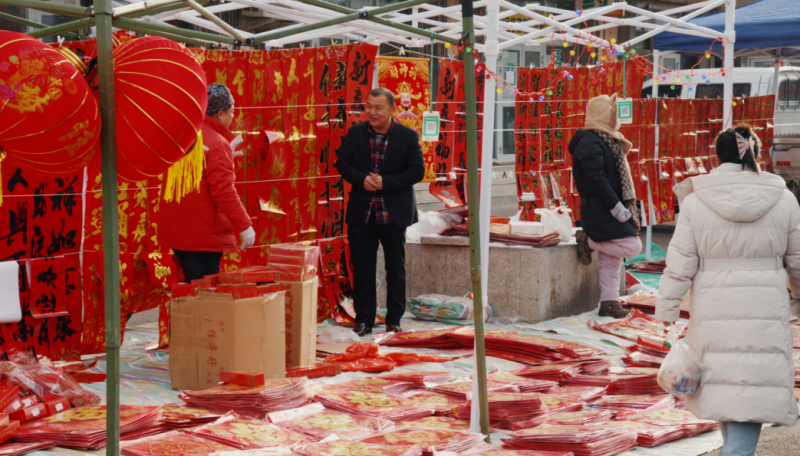
For those still undecided about what to buy, these specialty products from Xinjiang are recommended for consideration.
Lamb
In Xinjiang, lamb is a must-have. It’s typical for families to buy a whole sheep for celebrations, or at the very least, a leg of lamb. When a large platter of stewed mutton is served, the aroma fills the room.
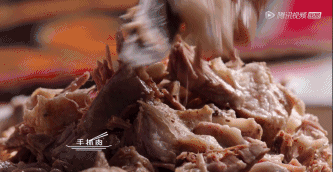
The quality of Xinjiang’s lamb is exceptional, whether it’s the Bayanbulak black-headed sheep, the Yuli Lop Nur sheep from southern Xinjiang, or the sheep from Altay in northern Xinjiang. Each breed is known for its tender and delicious meat.
Fish from Fuhai
Fish is another essential dish in the Chinese Lunar New Year's Eve feast, symbolizing abundance and prosperity.
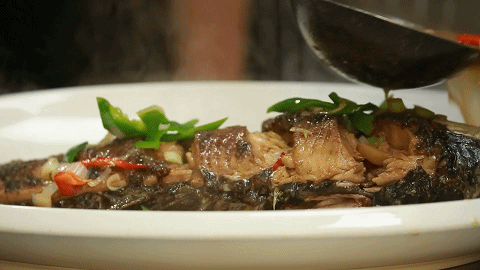
Fish from Fuhai County, Altay Prefecture, were sourced from the Ulungur Lake. Ulungur Lake is renowned for its purity and is home to over 20 species of cold-water fish, including Siberian dace, Abramis brama orientalis, and Esox lucius. These fish are celebrated for their firm, flavorful flesh and are recognized for being natural, wild, and free from pollutants.
Air-dried meat
Air-dried meat is characterized by the unique aroma developed during the drying process. Who could resist a bowl of air-dried meat with pilaf during meals?
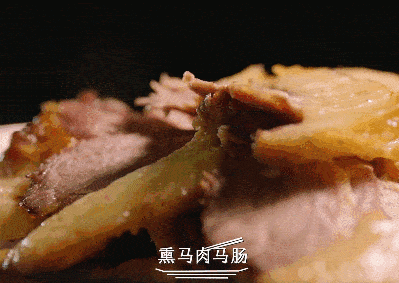
The commonly used raw materials are beef and lamb, which retain the original flavor. And the air-dried meat is known for its long preservation, earning it the nickname "meat gold." Tacheng’s air-dried meat is particularly delicious because of its region's vast, pristine grasslands and cool climate.
Special seasonings in Xinjiang
Seasonings for a Chinese Lunar New Year's Eve feast include Sichuan pepper, star anise, scallions, ginger, and garlic. Quality seasonings are crucial for flavor, and Xinjiang is renowned for producing such excellent ingredients.
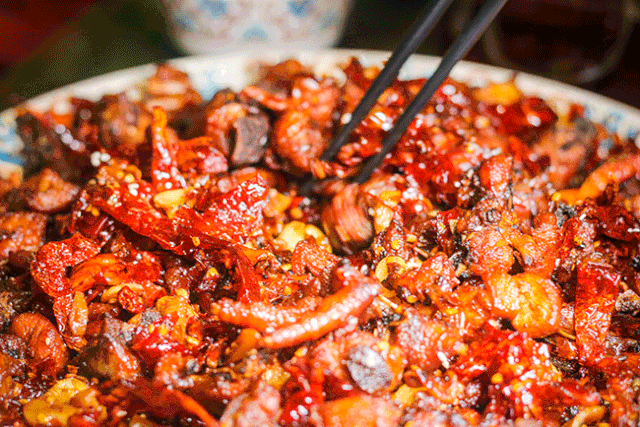
Xinjiang, rich in resources, is known for its abundant seasonings, especially the high-quality cumin from Yopurga County, the spicy peppers from Anjihai, and garlic from Jimsar County, which are among the best in the country.
Edible oil
When it comes to cooking festive dishes, using locally sourced cooking oil is an excellent choice.
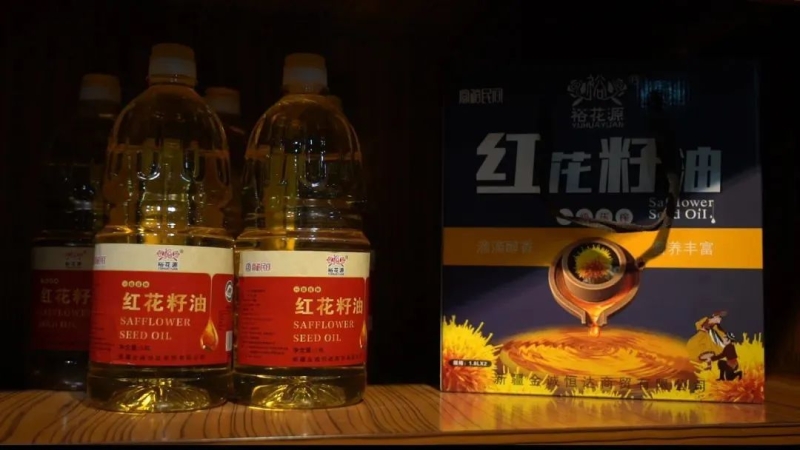
(Photo sourced from Yumin Lingjuli)
When talking about safflower seed oil, many people quickly think of Yumin County, often referred to as the "Hometown of thornless safflower in China." The county boasts over 6,667 hectares of safflower fields, and the oil they produce is well-known for its health advantages, making it particularly suitable for the elderly. It is also an excellent gift for friends and relatives during the festival.
Teas
Teas are a highlight during the Spring Festival, and a cup of fragrant tea also becomes essential to cleanse the palate after such hearty meals. Being the birthplace of tea, China offers incredible diversity, and Xinjiang contributes to that with several renowned specialty tea ingredients. Hotan rose tea is a particularly noteworthy example.

During the celebrations, whether it’s the orange-red hue of snow chrysanthemum tea, the refreshing aroma of rose tea, the health-promoting Apocynum venetum tea, or the slightly bitter yet sweet willow flower tea, these renowned teas from Xinjiang are indispensable in the Chinese tea culture. After a hearty meal, a cup of either strong or light tea not only aids in digestion but also helps to relax the mind.
Dairy products
In Xinjiang, one can always find a diverse array of dairy products, including milk skin products, yogurt, cheese, and yogurt chunks. These dairy products are made from natural ingredients, offering a variety of flavors and a rich texture.
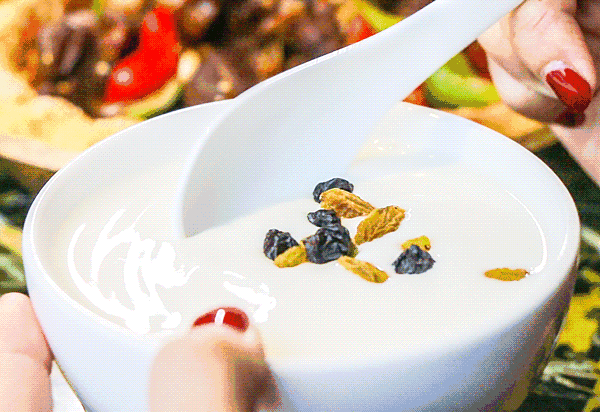
Globally, there is a recognized golden dairy source belt located between 40 and 50 degrees latitude, both north and south. Xinjiang, situated in the temperate grassland zone between 42 and 47 degrees north latitude, is ideally suited for the growth of pasture and is renowned for its high-quality dairy products. During the Spring Festival, an assortment of dairy delicacies is an essential part of the dining experience for the people of Xinjiang.
Dried fruits
Historically, Xinjiang has been a land abundant in culinary delights, and its dried fruits are particularly irresistible to many. Almonds, dates, walnuts, and dried apricots are just a few examples. In this region, known for its bountiful harvests, people utilize methods such as air drying, sun drying, and baking to transform fresh fruits into nutritious and delicious dried fruits and preserves.
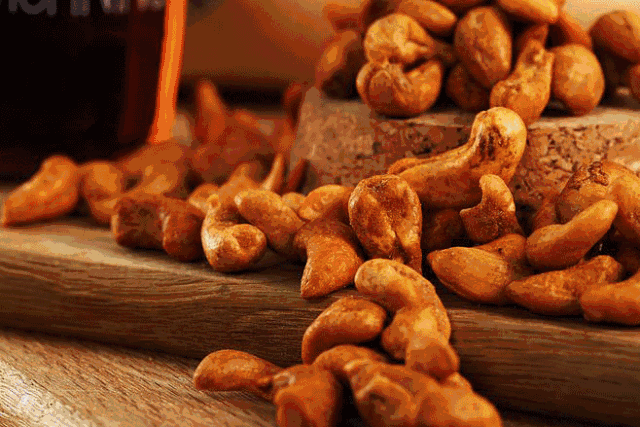
The ample sunlight and active photosynthesis in Xinjiang contribute to the rich nutritional content of its dried fruits, which are characterized by their high quality, plumpness, and delicate texture. Whether displayed on a tea table for guests or given as gifts when visiting friends and family, these treats embody joy and sincerity.
Fruits
Pomegranates, apples, and fragrant pears are just a few of the fruits that continue to thrive in the winter months of Xinjiang. Purchasing these as New Year’s preparations makes it convenient to entertain guests during the festive season.
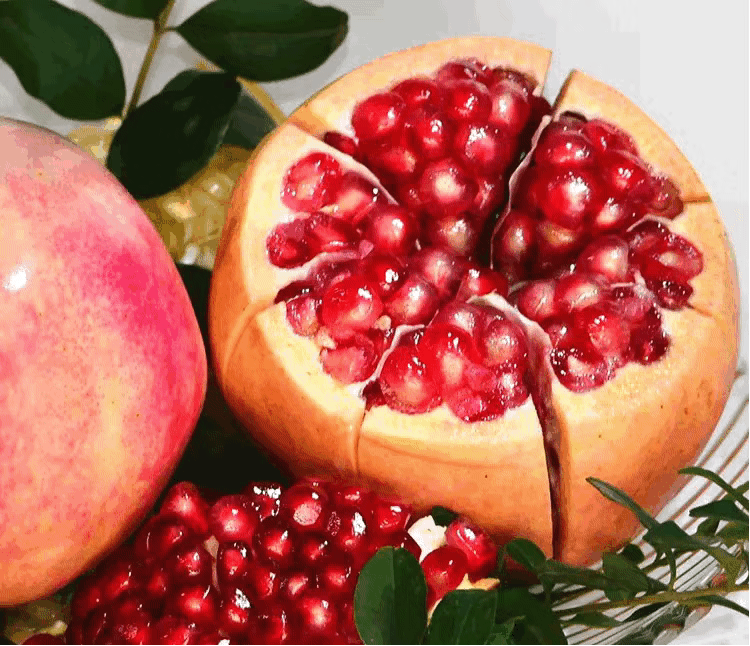
The winter season tends to be quite dry, necessitating an increased intake of hydration. Fruits such as pomegranates from Piyaman, fragrant pears from Korla, crystal sugar core apples from Aksu, and Xinjiang’s winter jujubes are rich in moisture and high in nutritional value.
In addition to the aforementioned Xinjiang’s specialties, what other goodies are on your New Year's shopping list?
(A written permission shall be obtained for reprinting, excerpting, copying and mirroring of the contents published on this website. Unauthorized aforementioned act shall be deemed an infringement, of which the actor shall be held accountable under the law.)









